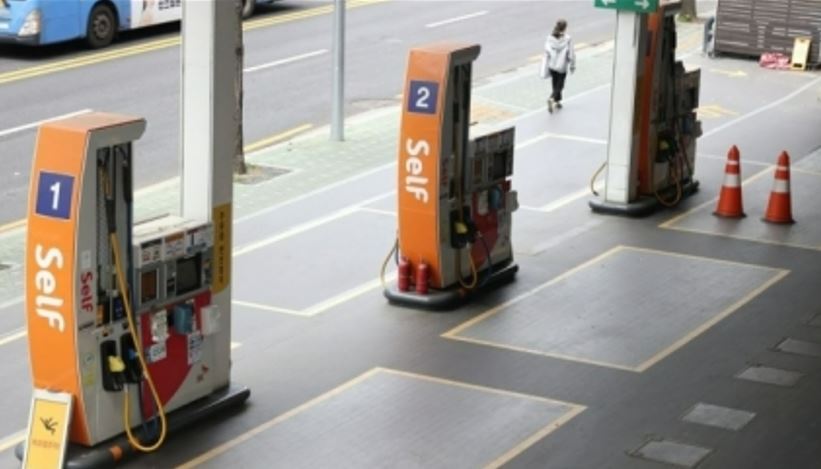Korea braces for oil price spikes following OPEC+’s output cut
By Kim Yon-sePublished : Oct. 6, 2022 - 16:20

SEJONG -- South Korea’s economic policymakers are likely to adopt another round of contingency plans to minimize possible instability in consumer prices, as the OPEC+ has decided to curb oil production.
The oil cartel’s decision comes after some local policymakers and market insiders claimed that Korea’s inflation was considered to have peaked in July, when consumer price growth posted 6.3 percent.
At a meeting in Vienna on Wednesday, the OPEC+ publicized its plan to reduce crude output by 2 million barrels a day starting from October, citing uncertainty involving a global economic slowdown.
Though the US’ Biden administration shortly said it would respond to the move by releasing some 10 million barrels from its Strategic Petroleum Reserve, international crude prices have shown signs of spiking on Thursday.
Western Texas Intermediate futures, which recorded $79.49 (111,100 won) per barrel last Friday, climbed for the third trading session to close at $87.76 on Wednesday. It traded at $87.93 as of 1:50 p.m. (Korean time).
Brent crude futures rose from $85.14 per barrel on Friday to $93.37 on Wednesday, with its price further climbing to $93.54 as of 1:50 p.m. Dubai crude futures also climbed for the third consecutive session.
An energy research analyst predicted that these price hikes will likely be reflected in gasoline and diesel prices in Korea in one or two weeks. Over the past two months, local energy prices had continued to drop after peaking in July.
The nation’s gasoline prices dropped for 23 consecutive days, from 1,740.68 won per liter on Sept. 13 to 1,667.94 won on Oct. 6.
Another possible spike in energy prices could be a detonator, which would further restrict Korea’s economic growth. Ratings firms will possibly cut their outlook on Korea's gross domestic product growth to the low 2-percent range.
After reaching 6.3 percent in July, the nation’s inflation inched down to 5.7 percent in August and 5.6 percent in September, according to Statistics Korea.
By Kim Yon-se (kys@heraldcorp.com)
The oil cartel’s decision comes after some local policymakers and market insiders claimed that Korea’s inflation was considered to have peaked in July, when consumer price growth posted 6.3 percent.
At a meeting in Vienna on Wednesday, the OPEC+ publicized its plan to reduce crude output by 2 million barrels a day starting from October, citing uncertainty involving a global economic slowdown.
Though the US’ Biden administration shortly said it would respond to the move by releasing some 10 million barrels from its Strategic Petroleum Reserve, international crude prices have shown signs of spiking on Thursday.
Western Texas Intermediate futures, which recorded $79.49 (111,100 won) per barrel last Friday, climbed for the third trading session to close at $87.76 on Wednesday. It traded at $87.93 as of 1:50 p.m. (Korean time).
Brent crude futures rose from $85.14 per barrel on Friday to $93.37 on Wednesday, with its price further climbing to $93.54 as of 1:50 p.m. Dubai crude futures also climbed for the third consecutive session.
An energy research analyst predicted that these price hikes will likely be reflected in gasoline and diesel prices in Korea in one or two weeks. Over the past two months, local energy prices had continued to drop after peaking in July.
The nation’s gasoline prices dropped for 23 consecutive days, from 1,740.68 won per liter on Sept. 13 to 1,667.94 won on Oct. 6.
Another possible spike in energy prices could be a detonator, which would further restrict Korea’s economic growth. Ratings firms will possibly cut their outlook on Korea's gross domestic product growth to the low 2-percent range.
After reaching 6.3 percent in July, the nation’s inflation inched down to 5.7 percent in August and 5.6 percent in September, according to Statistics Korea.
By Kim Yon-se (kys@heraldcorp.com)

















![[KH Explains] Hyundai's full hybrid edge to pay off amid slow transition to pure EVs](http://res.heraldm.com/phpwas/restmb_idxmake.php?idx=652&simg=/content/image/2024/04/18/20240418050645_0.jpg&u=20240419100350)

